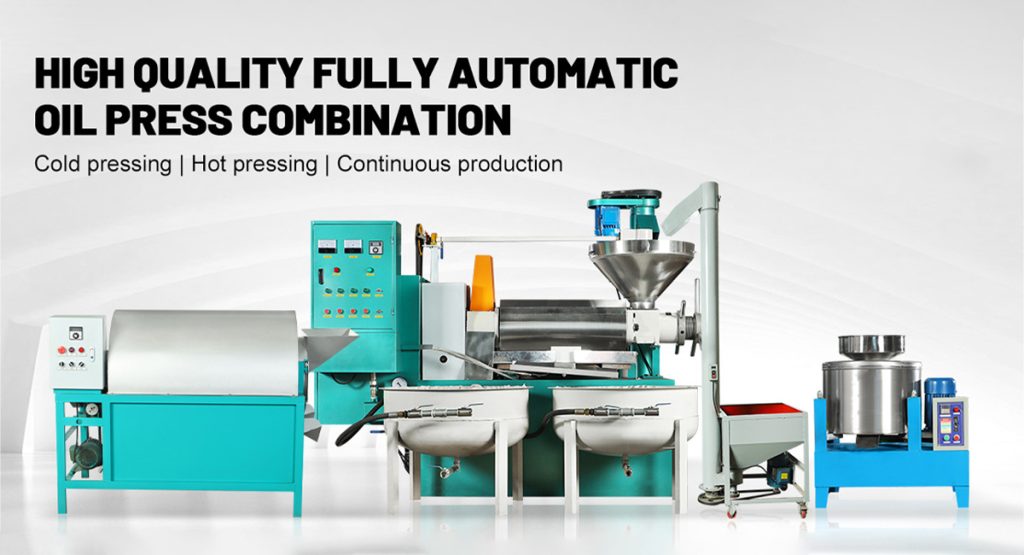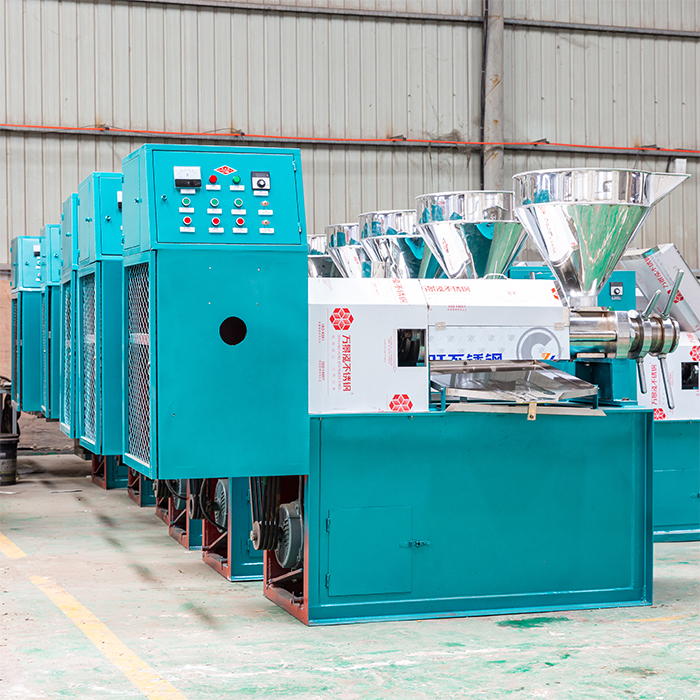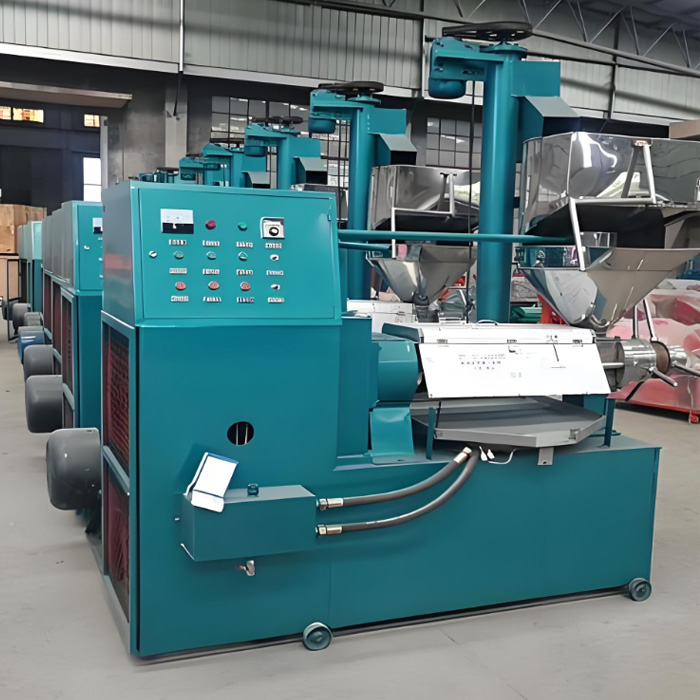The development trend of oil press in 2024
As a key equipment for vegetable oil extraction, the Fude oil press has multiple significant advantages, which not only improve production efficiency but also ensure the quality of oil products and the sustainability of production.
- Efficient performance
- Modern oil presses are well-designed and can efficiently extract oil from oilseed crops. High efficiency and fast production speed mean the ability to process large amounts of raw materials in a short period of time, meeting the needs of large-scale production.
- Energy Saving
- With the advancement of technology, oil presses are becoming increasingly efficient in terms of energy utilization. The advanced oil press adopts energy-saving design and optimized workflow, reducing energy consumption and production costs.
- Multifunctionality
- Different types of oil presses can adapt to different types of oil crops, such as soybeans, peanuts, rapeseed, sesame, etc. This multifunctionality enables oil presses to be widely used in the production of various vegetable oils, meeting the needs of different markets.
- High quality oil products
- The oil press extracts oil through physical pressing, preserving the natural nutrients and flavor of the oil. Compared with chemical extraction methods, the oil produced by oil presses is purer and healthier, suitable for food processing and direct consumption.
- Environmental protection and energy conservation
- The oil press generates less waste during the production process and is easy to handle. The Fude oil press is also equipped with a waste recycling and reuse system, further reducing its impact on the environment. In addition, the high efficiency of oil presses in energy utilization also helps reduce carbon emissions and environmental pollution.
- Easy to operate
- Fude oil presses usually adopt automation and intelligent design, making operation more convenient and efficient. Operators only need to perform simple settings and monitoring to complete the entire production process. This design reduces the requirements for operator skills and improves production efficiency and safety.

The development trend of oil presses can be analyzed from multiple aspects, including market demand, technological progress, environmental requirements, and international development
Market demand continues to grow
With the increasing demand for healthy food and natural ingredients, the market demand for vegetable oils is also constantly expanding. As one of the main equipment for vegetable oil production, the market demand for oil presses is also showing a steady growth trend. This growth not only comes from the demand for traditional edible oils, but also from emerging fields such as healthy food and bioenergy.
Technological progress drives industrial upgrading
The technological level of the oil press industry is constantly improving. Enterprises improve the efficiency and quality of oil presses by developing new production processes, improving equipment, and optimizing product performance. Modern oil presses not only have the characteristics of high efficiency and low energy consumption, but also have functions such as automated control and intelligent operation. These technological advancements have promoted the industrial upgrading of the oil press industry, improving the competitiveness and added value of products.
 Oil Press Equipment and Oil Refining Machinery for Sale – Start Your Oil Press Business
Oil Press Equipment and Oil Refining Machinery for Sale – Start Your Oil Press Business

